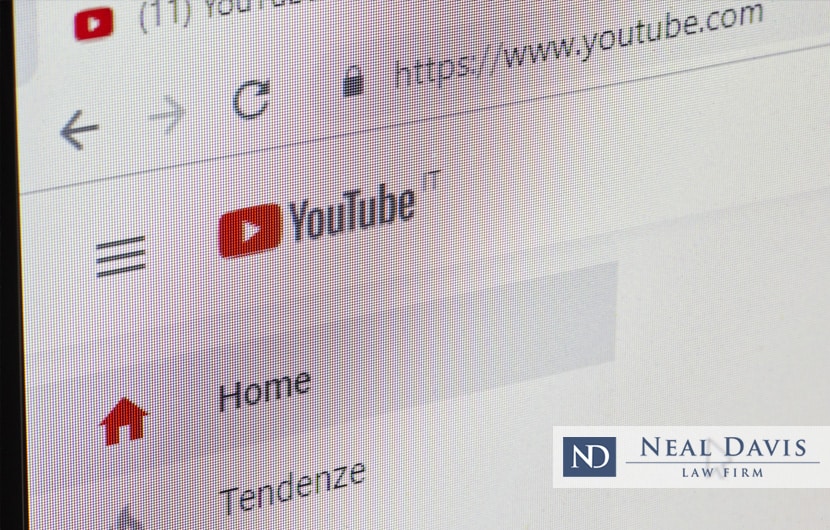“Can I get a job if I have a felony record?” Yes.
Discuss your legal rights with experienced Houston defense attorney Neal Davis.
Completing a prison sentence or paying a fine is only the beginning of the repercussions a criminal offender may experience in his or her lifetime.
Prejudice and discrimination against criminal offenders, even those who have already served out their sentence, is rampant in American society.
The Neal Davis Law Firm, located in Houston, Texas, has handled hundreds of expungement and nondisclosure cases over the years. Contact us to see if you qualify.

This fact is painfully evident when it comes to issues like employment, as these unsettling background check statistics prove:
- The federal Equal Employment Opportunity Commission (EEOC) holds that “widespread use of criminal background checks can have a discriminatory impact on minorities that is unrelated to the job or the needs of the employer to protect itself and its customers from an employee with a criminal conviction.”
On the one hand, it is necessary to protect the public from criminal offenders who show a propensity of re-committing a crime and it is equally important to avoid putting the offender in a position of opportunity to engage in criminal behavior again. For instance, a person previously convicted of a child sex offense should not be allowed to work with children or as a school bus driver and a person convicted of fraud should not be given management of large amounts of cash. These stipulations are common sense and employers have the right (and duty) to practice due diligence in the hiring process to ensure the safety of their customers, other employees and the public.
However, on the other hand, reintegrating those with a criminal past as productive members of society is known to be beneficial for the offender and the public as a whole. Data shows that having a routine schedule and income from being employed greatly lessens a person’s likelihood of becoming a repeat offender. Plus, many people accused of a crime are honest, hard-working citizens who were just caught up in a bad situation. Therefore, it is important to help individuals overcome the biases that exist in the job application process in regarding to criminal backgrounds.
Employer Criminal Background Checks in Texas
Each state has different rules governing how much an applicant is forced to reveal when applying for a job. These days, background checks are almost always performed on job applicants’ criminal and credit history. In Texas, background checks are conducted by consumer reporting agencies who are subject to state and federal limitations. These limitations allow an employer to look back at an applicant’s criminal history for the last seven years.
Under Texas law, however, there are a couple exceptions to the seven-year rule:
- If the annual salary of the job being applied for exceeds $75,000, an employer can view an applicant’s entire adult criminal history back to age 18.
- Criminal records of minors are typically sealed, so an employer should not be able to find out about a conviction even if you are under the age of 25 and less than seven years from age 18.
- When applying for a job at an insurance company or a government agency (both state and local), the employer may look at your criminal history back to your 18th birthday.
- When applying for a residential delivery services (UPS or FedEx) or at-home/in-home services (plumber, electrician, handyman, landscaper, etc.) job, the employer must run a criminal background check that includes history on the last 20 years for a felony and 10 years for a misdemeanor conviction or deferred adjudication involving domestic violence, theft or public indecency.
Important note:
The seven-year rule only applies to employers who hire an outside reporting agency to run a background check. Employers who perform their own criminal background checks have no such limit and can look as far back as they like. Most employers do not conduct their own background checks; however, it is worth mentioning that this rule is not unconditional.
What Shows Up on a Criminal Background Check?
If you plead guilty or no contest to a crime and are convicted, even if you accepted probation or deferred adjudication instead of prosecution, the charge will show up on your criminal background check if run by an employer. If, however, you pled innocent and the charges were dropped or dismissed, it will not appear on a background check.
In general, you do not have to inform a potential employer about your criminal history if:
- An arrest is not currently pending or you weren’t convicted for a past arrest.
- You are currently undergoing pre-trial adjudication for non-criminal offense.
- A certain number of years have passed since you were convicted of a minor drug offense.
- You have obtained a certificate of rehabilitation, nondisclosure or expungement.
- You were convicted of a crime as a juvenile and are now an adult.
What about arrests?
While no law in Texas exists regarding whether employers can choose to hire an applicant based on their arrest record, the EEOC prohibits using arrests as a basis for employment decisions due to the fact that such policies often lead to discrimination against ethnic and racial minorities, who are more likely to be arrested. Also, an arrest is not proof that criminal activity actually occurred since a defendant is “innocent until proven guilty.”
Unfortunately, while employers should not uncover arrest records and arrests are not supposed to show up on a criminal background check, the reality is they sometimes do – and therefore it can unfairly play a role in the hiring decision.
When Applying for an Employment with a Felony Record
Getting employed is competitive enough these days, especially when you have to worry about having a criminal record. Employers have the right to choose who works for them and they may not hire an individual with a job-related criminal record – so long as they have sound business or legal reasons for doing so, considering the nature of the offense.
You can’t do anything about an employer’s behavior. However, knowing your rights and conducting yourself appropriately can give you the best possible chance at employment. Here is some expert advice on what to do when searching or applying for a job with a criminal record:
- Be honest. Honesty is always the best policy if a potential employer asks about your criminal history. While telling the truth may prevent you from getting some jobs, honesty is the best way to ensure you can keep that position in the long run and build a relationship of trust with your employer.
- Ask around. Begin your job search by asking friends, family and personal connections if they are looking to hire or know of an open position. People who know you tend to be more likely to give you a chance despite a criminal record. You might also consider asking someone to write a letter of recommendation on your behalf to a potential employer.
- Start small. You probably won’t be able to land your dream job right after serving a prison sentence. Be open to taking temporary or entry-level positions to build your resume so that future employers can see your good track record.
- Be understanding. It can be really frustrating to be turned down for a job because of your past; however, try to be considerate of the employer’s point of view. They have the best interests of their customers and employees in mind and some employers (sadly) might be unwilling to give you a chance.
- Do research. Having certain convictions on your record may disqualify you from certain positions. Before you begin your job search, know which criminal offenses are on your record and how they are related to the jobs for which you are applying. Don’t waste your time applying for jobs like working for the government or with children if you will automatically be disqualified for these positions due to a prior offense. Also, know your rights regarding what employers are permitted to consider when asking about your criminal history.
- Read carefully. While it is important to be honest when completing a job application, you do not always have to disclose your history. For example, if the application asks if you were convicted of a felony, you don’t need to tell the employer about your misdemeanor conviction. Some applications only ask about convictions pertaining to certain charges (drug possession, sex offense, etc.). Be sure to read the application carefully and only mention your criminal history when you must.
- Seek help. Look into professional employment services (such as a “temp”or staffing agency) or nonprofit organizations that help people with criminal records locate jobs. One such organization is the Texas Workforce Commission. You may also consider contacting an attorney to explore the option of expungement or getting your criminal records sealed.
“I was on probation and made a stupid mistake which caused my probation to be revoked. I lost my job because I was arrested at work and my wife and I were terrified. Eviction from our apartment was next. Neal was able to get the charge dismissed so that I could finish my probation and get us out of imminent disaster. He was always there for my wife by phone and text while I was stuck in jail and steered us the right way. Because of him and his associate, Ty, were were able to get back on track. What an excellent lawyer and I would recommend him to anyone!!!!”
Houston | Charge dismissed
Verified Customer
Resources for Ex-Offender and Felons
- Jobs for Felons in Texas – Forum discussion from an ex-felon looking for oil field jobs in Texas.
- Huffington Post: Life After Prison – Various accounts of people who have successfully rebuilt their lives after years of incarceration.
- Second Chances for Felons: List of companies in Houston, Texas that hire felons
- Prison Fellowship – Helping ex-prisoners find jobs.
Companies that hire ex-prisoners
Felony Franks
Problem – Ex-offenders are often discriminated against and even verbally abused because of the stigma attached to having a criminal record. In some workplaces ex-offenders are made to feel like second class citizens who are not trustworthy.
Solution – Felony Franks treats all employees and customers as equals, with dignity and respect as all people should be treated.
Source: Felony Franks
Recycle Force
RecycleForce helps ex-offenders break down the barriers to employment by providing transitional jobs for up to six months, as well as comprehensive services designed to get their lives back on track. The RecycleForce model offers program participants an integrated focus on jobs skills, character development and personal counseling. This “wrap-around” approach greatly increases the chance of sustained future employment and decreases the instances of re-offending.
Drive Change
“Our mission is to use the food truck workplace to run a 1-year Fellowship for young people returning home from jail/prison so they can obtain preferential employment and educational opportunities.”
Source: Drive Change
Homeboy Industries
“Homeboy Industries serves high-risk, formerly gang-involved men and women with a continuum of free services and programs, and operates several social enterprises that serve as job-training sites.”
Source: Homeboy Industries: what we do
Dave’s Killer Bread
“One in three of our employee partners has a criminal background. At Dave’s Killer Bread, we believe everyone is capable of greatness and that a second chance can lead to positive lasting change.”
Getting a clean slate: Expunging your criminal record
In the state of Texas, individuals with a criminal record have two available methods for sealing their information or starting off on a “clean slate.” These two methods include expunction (erasing your criminal record completely) or nondisclosure (sealing your record so that only law enforcement and government agencies can see it). An individual must meet certain requirements to qualify for expunction or nondisclosure, so you should consult a knowledgeable criminal defense lawyer about handling these requests.
If you have a past conviction that will appear on a criminal background check and may prevent you from getting a job, consider contacting a criminal defense attorney near you to discuss expunging your record or securing an order of nondisclosure.






